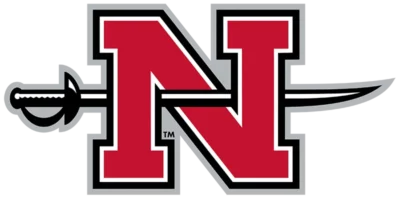SOWK 101. Introduction Social Work. 3-3-0. A systematic overview of the structure of social service provision at the micro, mezzo, and macro levels of society. Social work concepts of client advocacy and empowerment, resource allocation, and the effect of social policy on the individual. Soci-poli-economic issues are examined. (44.0701)
SOWK 102. Social Welfare. 3-3-0. Prerequisite: C or better in SOWK 101. Examines the history, functions, policies, and ethics associated with the social welfare system. Participants will discuss specific issues associated with the management of programs and systems supporting disadvantaged populations. Focuses on children and family supportive services. (44.0701)
SOWK 240. Social Work Skills and Interviewing Techniques. 3-3-0. An applied learning course focusing on evidence-based motivational interviewing techniques to facilitate patient/client change. Use of case studies, vignettes, and recorded role play sessions to evaluate personal interview skills. (44.0701)
SOWK 280. Human Behavior in the Social Environment I. 3-3-0. Study of individual and social behavior over the life-span and application of social work theories and perspectives. General Systems Theory is applied to ethno-cultural issues in a construct which enables the student to describe the range and nature of social interactions. (44.0701)
SOWK 300. Human Diversity and Social Justice. 3-3-0. Focuses on the principles and skill sets of multicultural social work practice. A historical review of sociopolitical forces and its consequences on marginalized groups is explored with discussions of current policy practice. Each student completes a client file demonstrating cultural competence with diverse populations. (44.0701)
SOWK 305. Social Research. 3-3-0. Prerequisite: C or better in SOCI 225 and 3 hours of non-developmental MATH. Advanced concepts and applications of social science research methods and data analysis techniques. The student will apply descriptive and inferential statistics used in data analysis focusing on Social Work evidence-based practice and interventions. (44.0701)
SOWK 306. Generalist Social Work Practice. 3-3-0. Skills for entry level human service provision. Case management, effective communication, and inter-agency relations are presented with application to case history. (44.0701)
SOWK 325. Medical Social Work. 3-3-0. Examination of the significance of social and cultural factors in the production, service, delivery, and utilization of health care. Students are introduced to biopsychosocial assessments in medical settings and appropriate resource referrals. Interdisciplinary team work models are examined and the student participates in role play activities and panel discussions. (44.0701)
SOWK 345. Social Work Practice I. 3-3-0. Focuses on the foundational core concepts of social work education. Students will learn ethical and professional behavior, human rights advocacy, how to engage with individuals, families, groups, organizations, and communities. Assessment strategies and evidence-based practice are explored. (44.0701)
SOWK 346. Social Work Practice II. 3-3-0. Prerequisite: C or better in SOWK 345. Study of concepts of social activism and progressive organizing relative to grass roots movements and the process of societal change. Organizational models are examined and applied in a real-world setting. (44.0701)
SOWK 380. Human Behavior in the Social Environment II. 3-3-0. Prerequisite: C or better in SOWK 280. Introduces the student to theories and perspectives of human development to analyze the relationship between individuals and macro systems. The impact of complex social institutions and structures on individuals, groups, and organizations are explored. Students are given the skills necessary to engage with clients and client systems to promote social and economic justice. (44.0701)
SOWK 387. Substance Abuse. 3-3-0. Causes, processes, and consequences of the use and abuse of legal and illicit substances. Social work theories and treatment models are explored and the student will apply case management skills in assessment, diagnosis, and service referrals. The Strengths-Based and Person-in-Environment Models are applied to addiction therapy and recovery in a case management final project. (44.0701)
SOWK 391. Families and Children. 3-3-0. Prerequisites: C or better in SOWK 102, 325, and 346. Focuses on generalist practice with families and children. Students will apply the ecological model of helping families and children, utilize different intervention methods, and assess family needs in different circumstances in a changing world. The student will complete a series of case management scenarios through role-play and video assessments. (44.0701)
SOWK 401. Social Work Policy and Practice. 3-3-0. Prerequisite: C or better in SOCI 102, 300, and 306. Builds on the foundation knowledge of social work and focuses on political elements and policy development. Students examine and critically analyze social policy formulation in a comparative historical context. (44.0701)
SOWK 403. Field Practice I. 3-0-12. Prerequisite: Junior standing and SWRK major. Provides an opportunity for students to apply social work theory and perspectives in generalist social work practice with individuals, families, communities, and groups. A minimum of 200 clock hours will be in an approved agency setting. (44.0701)
SOWK 404. Field Practice II. 3-3-12. Prerequisite: Senior standing and C or better in SOWK 403. Provides an opportunity for students to apply social work theory and perspectives in generalist social work practice with individuals, families, communities, and groups. A minimum of 200 clock hours will be in an approved agency setting. (44.0701)
SOWK 410. DSM-5 Generalist Practice Diagnosis. 3-3-0. Introduction to the three major sections of the DSM-5 manual. The student will become familiar with terms and diagnostic criteria. Experiential learning experiences using vignettes and videos aid the student in assessment and diagnosis skills for social work generalist practice. (44.0701)
SOWK 424. Trauma and Disaster. 3-3-0. Prerequisites: C or better in SOWK 101, 280, and 401. An advanced course that surveys institutions, federal policies, and historical trends in disaster response management. Students will complete specific FEMA-NIMS, CDC-ERHMS, and Red Cross certifications as a major component of course work. The life-disrupting effects of natural and man-made disasters will be discussed and the student will apply current assessment and therapeutic models for trauma impacted individuals, groups, and organizations. (44.0701)
